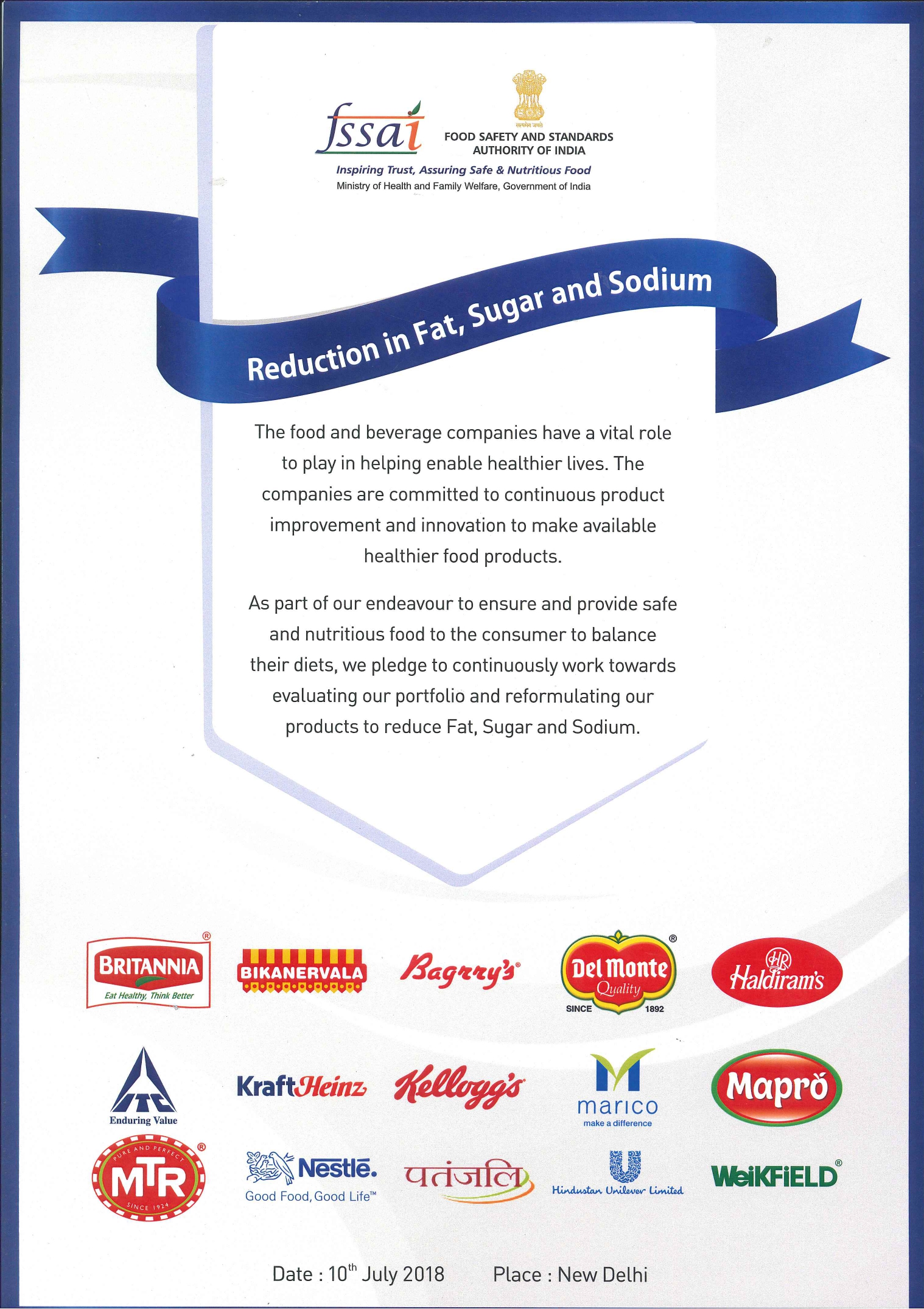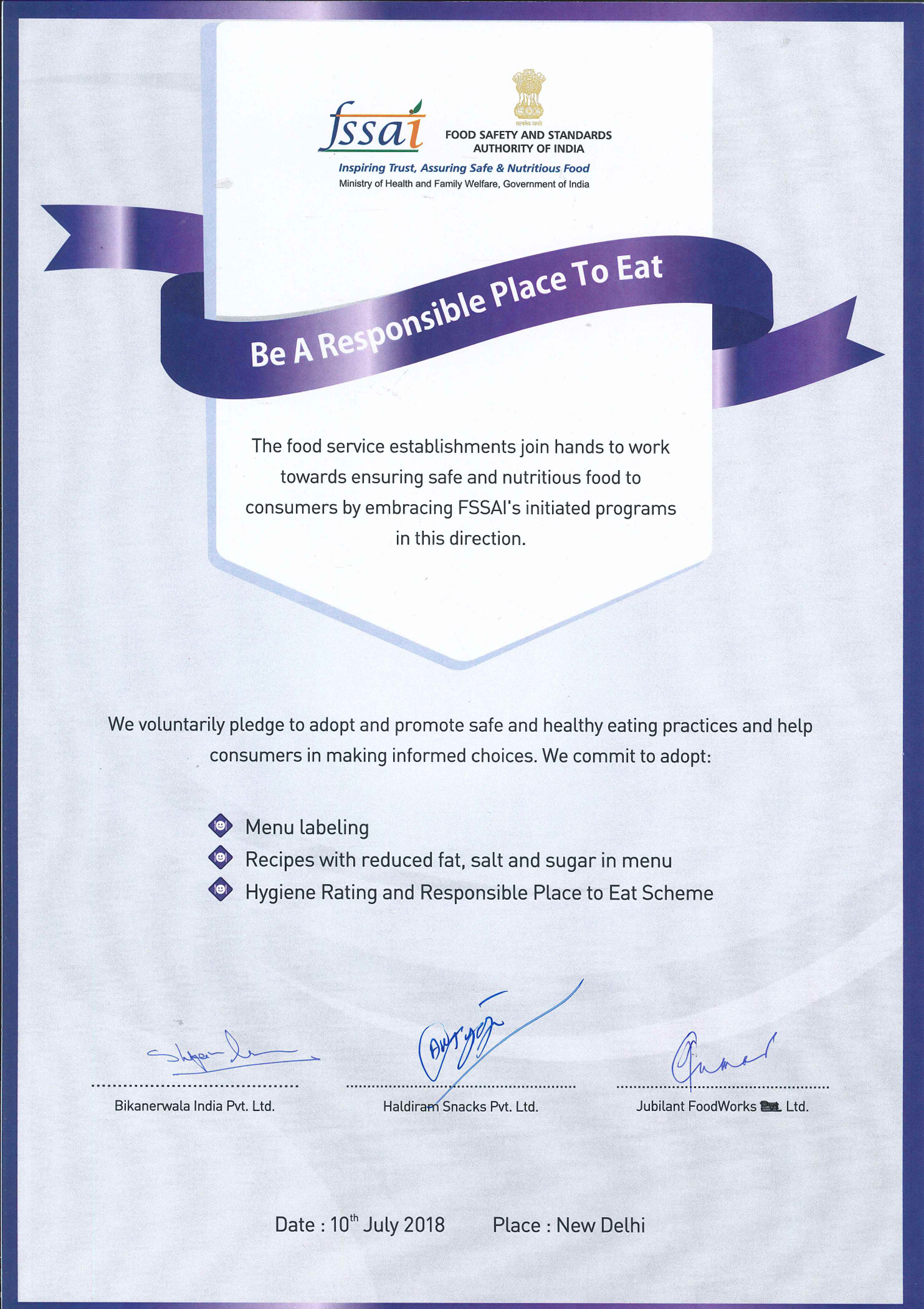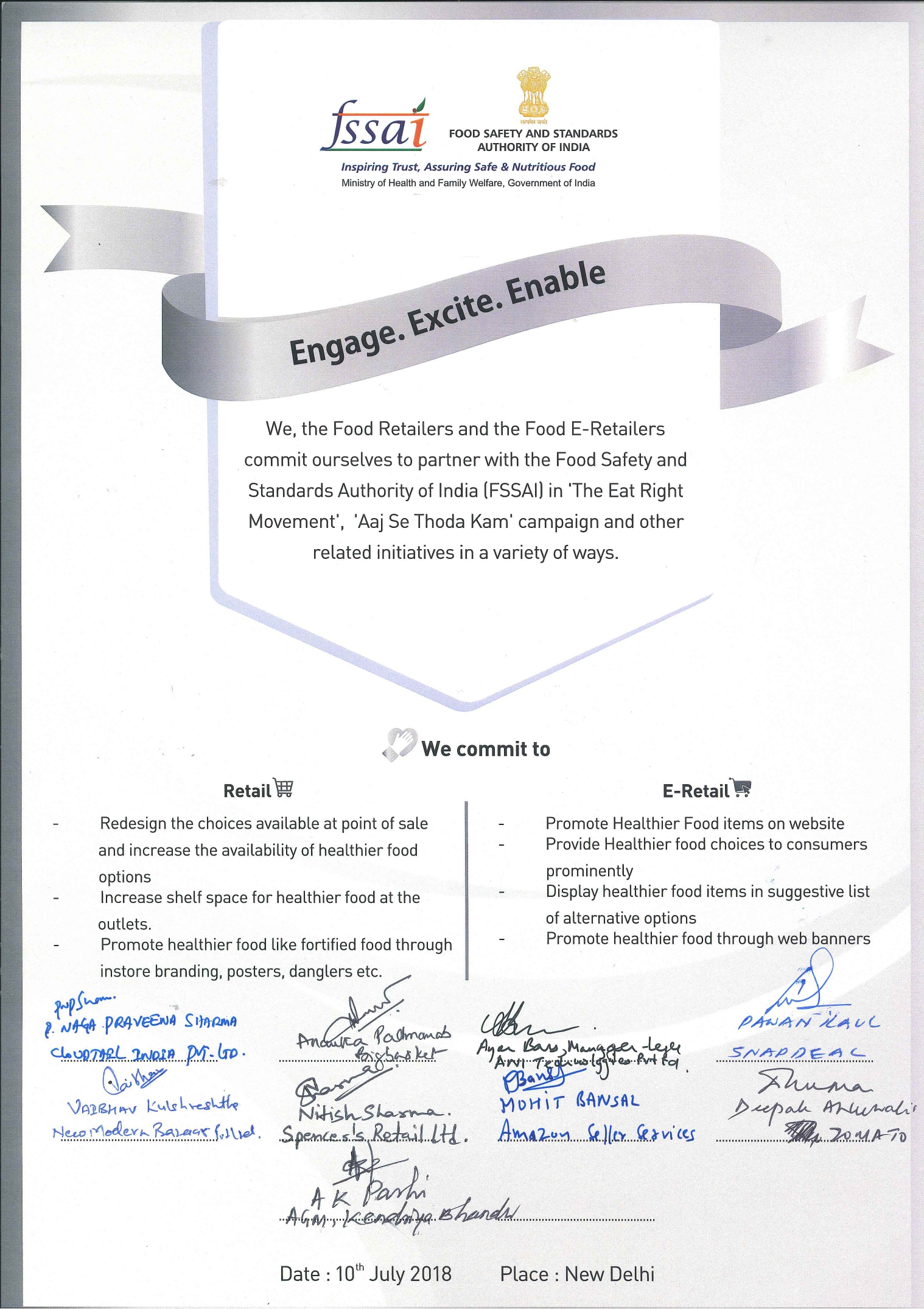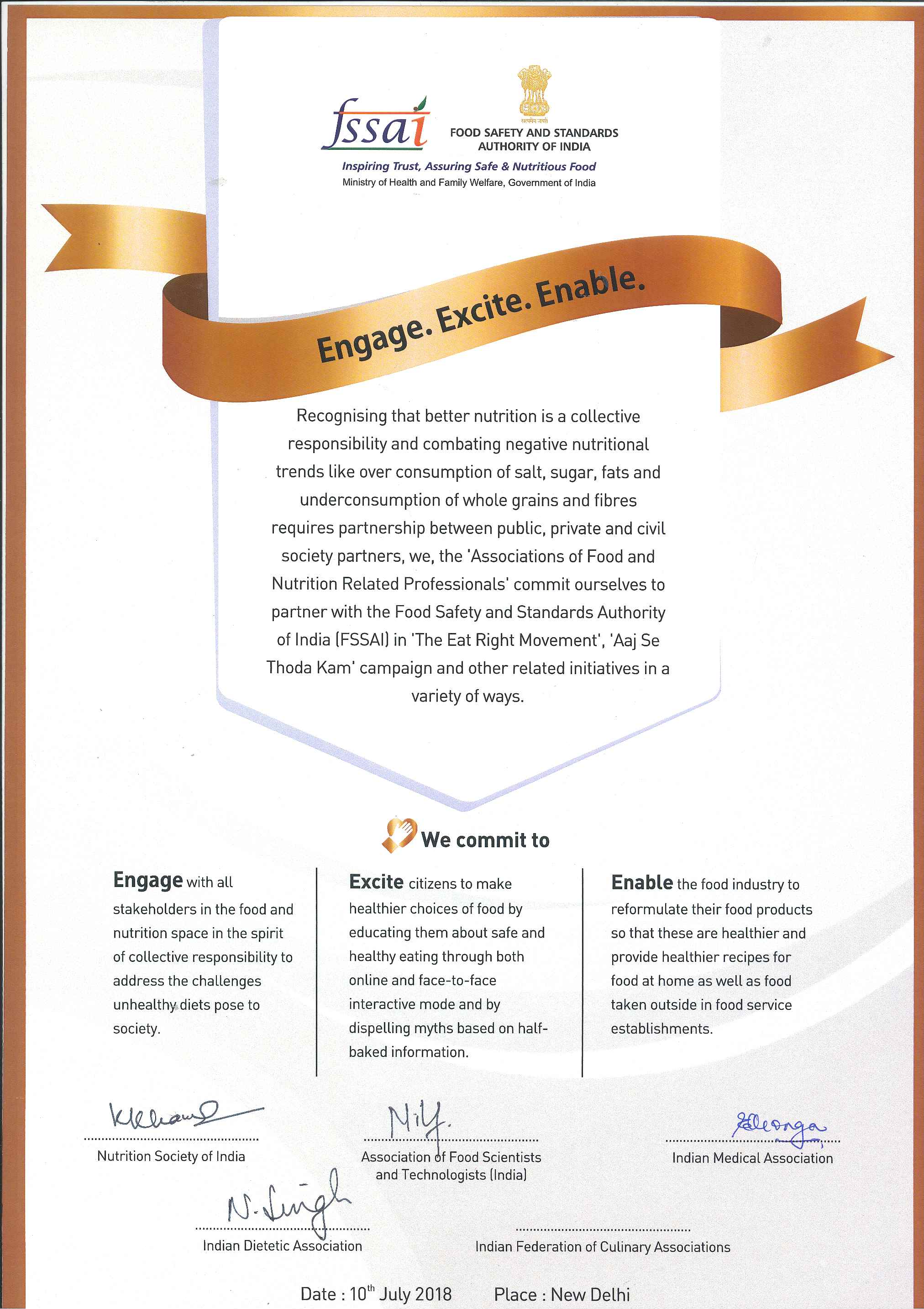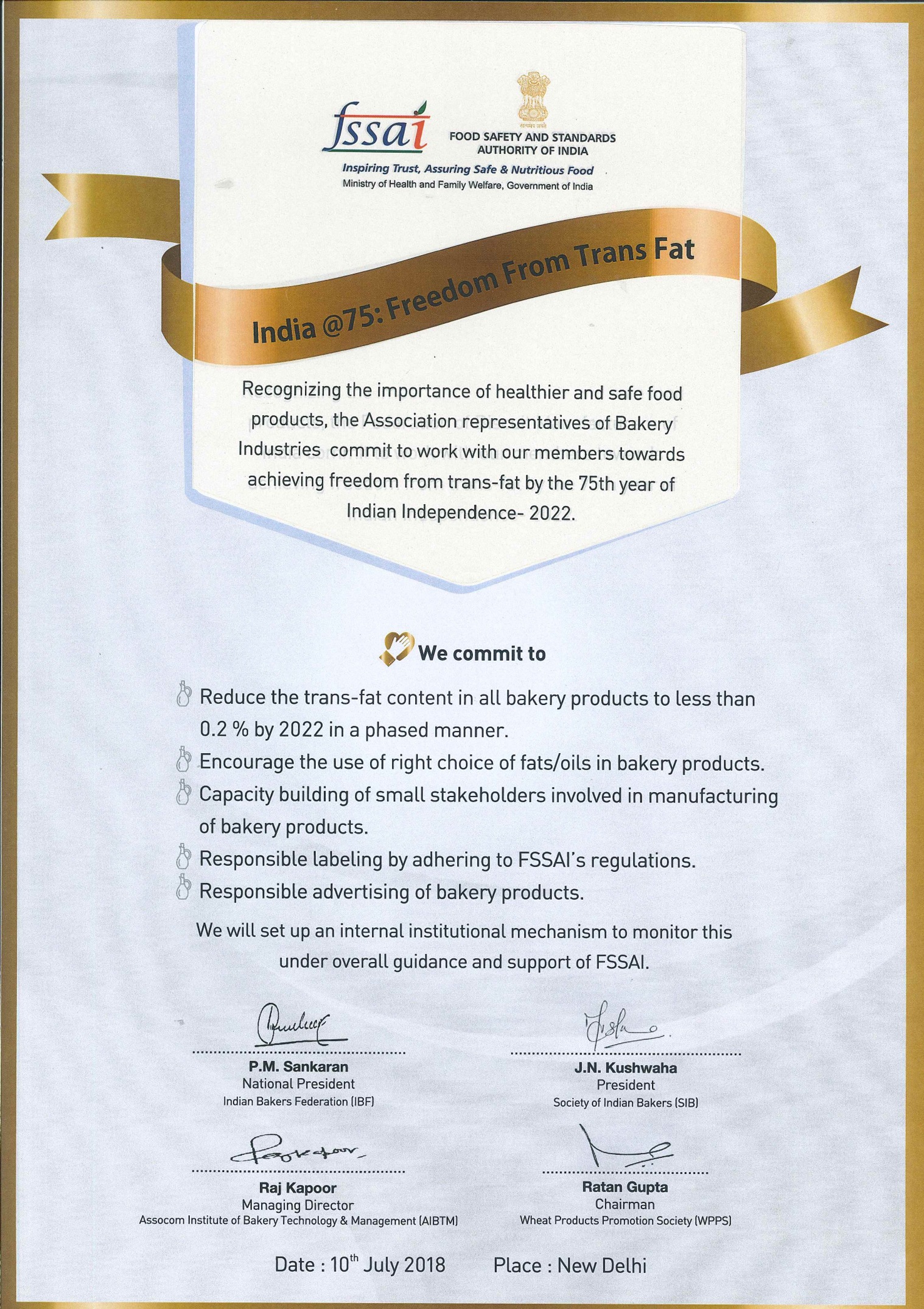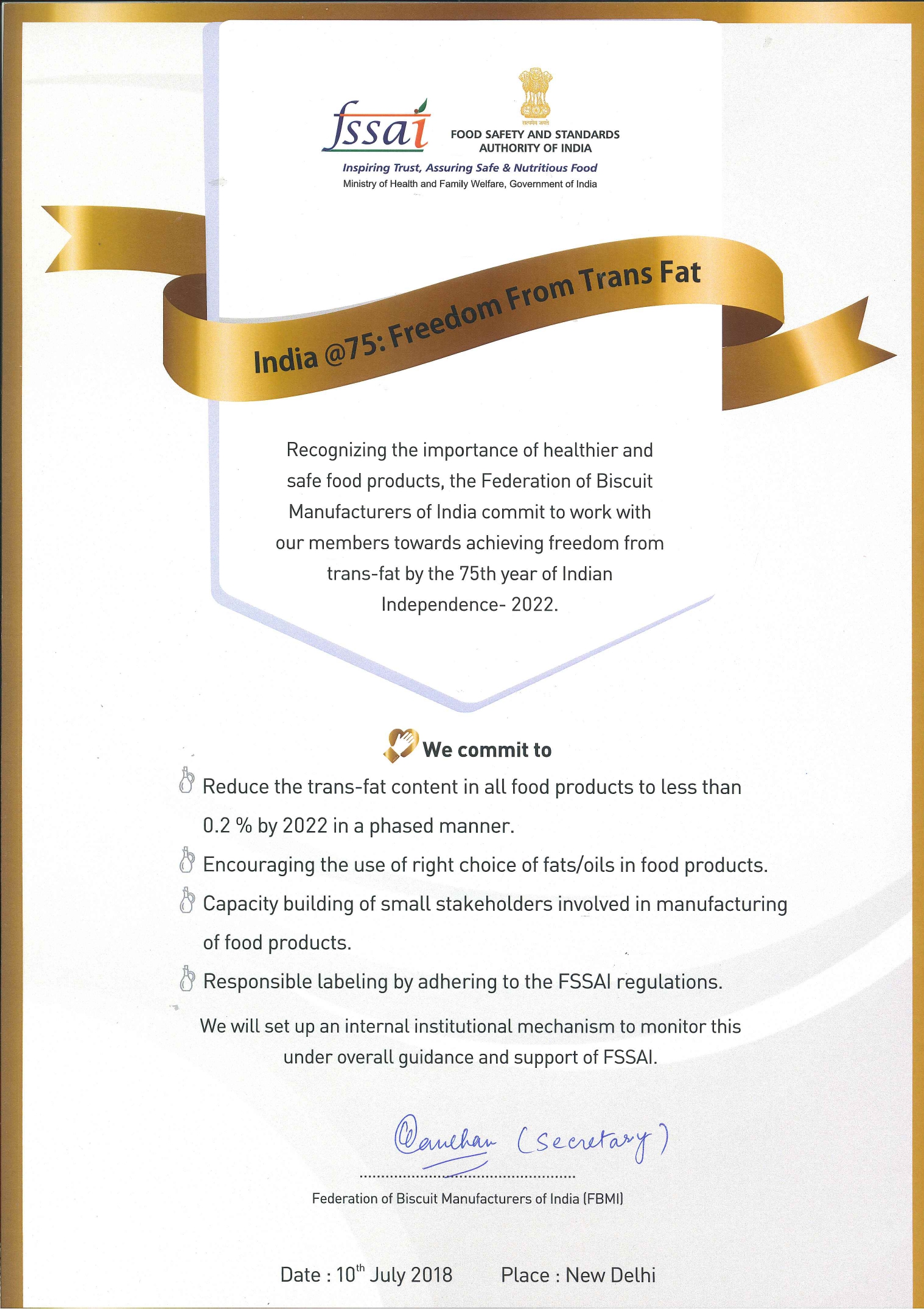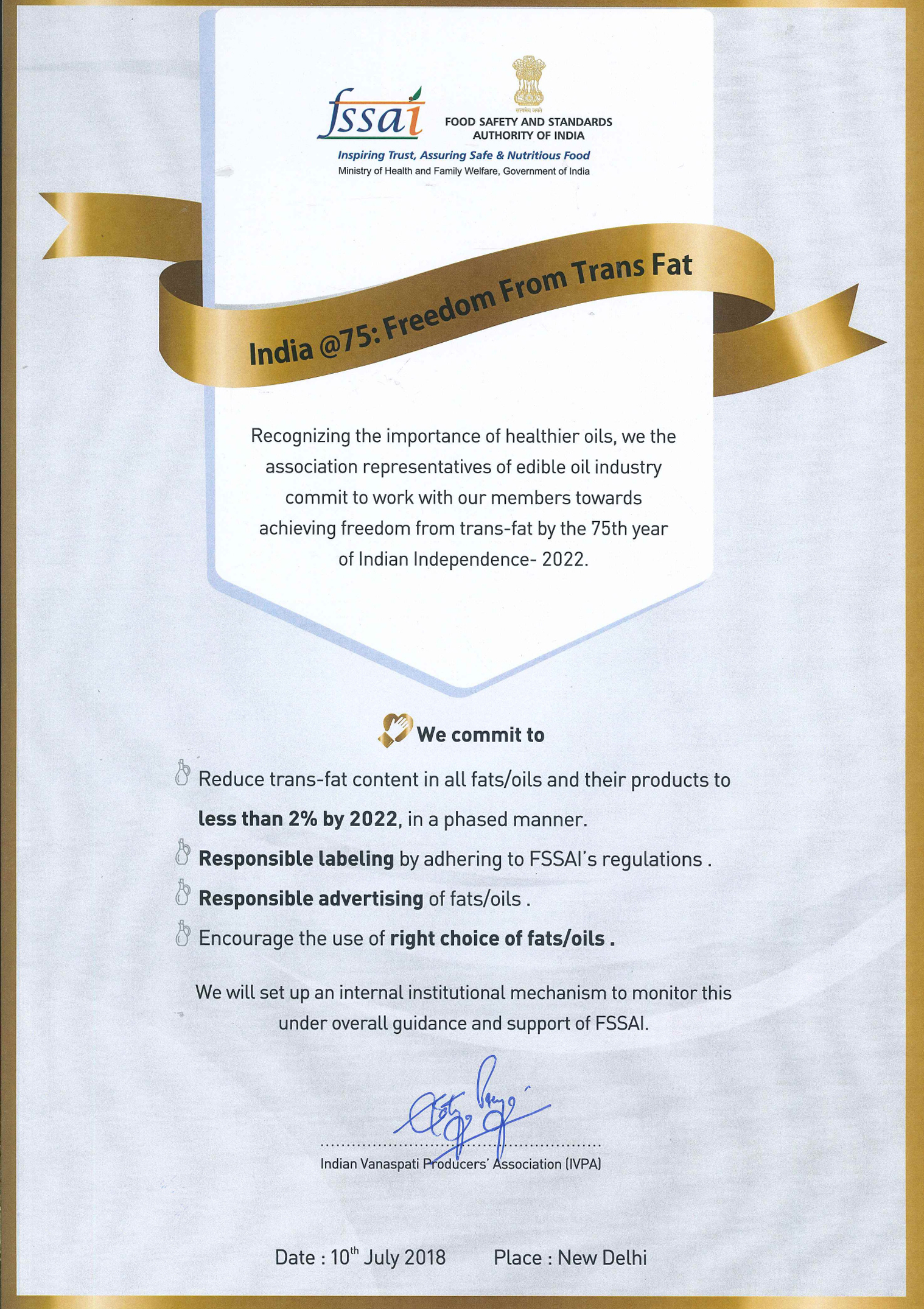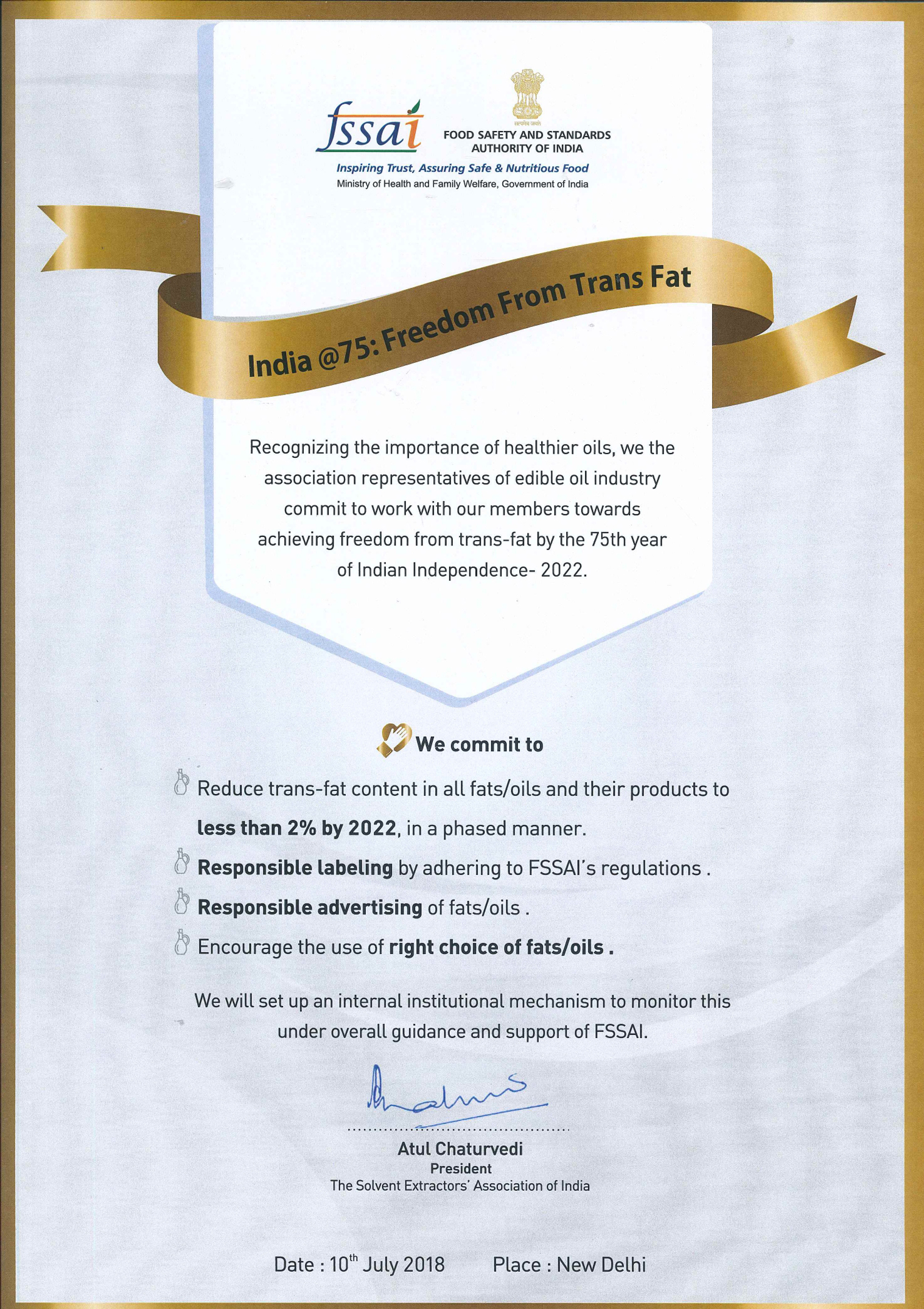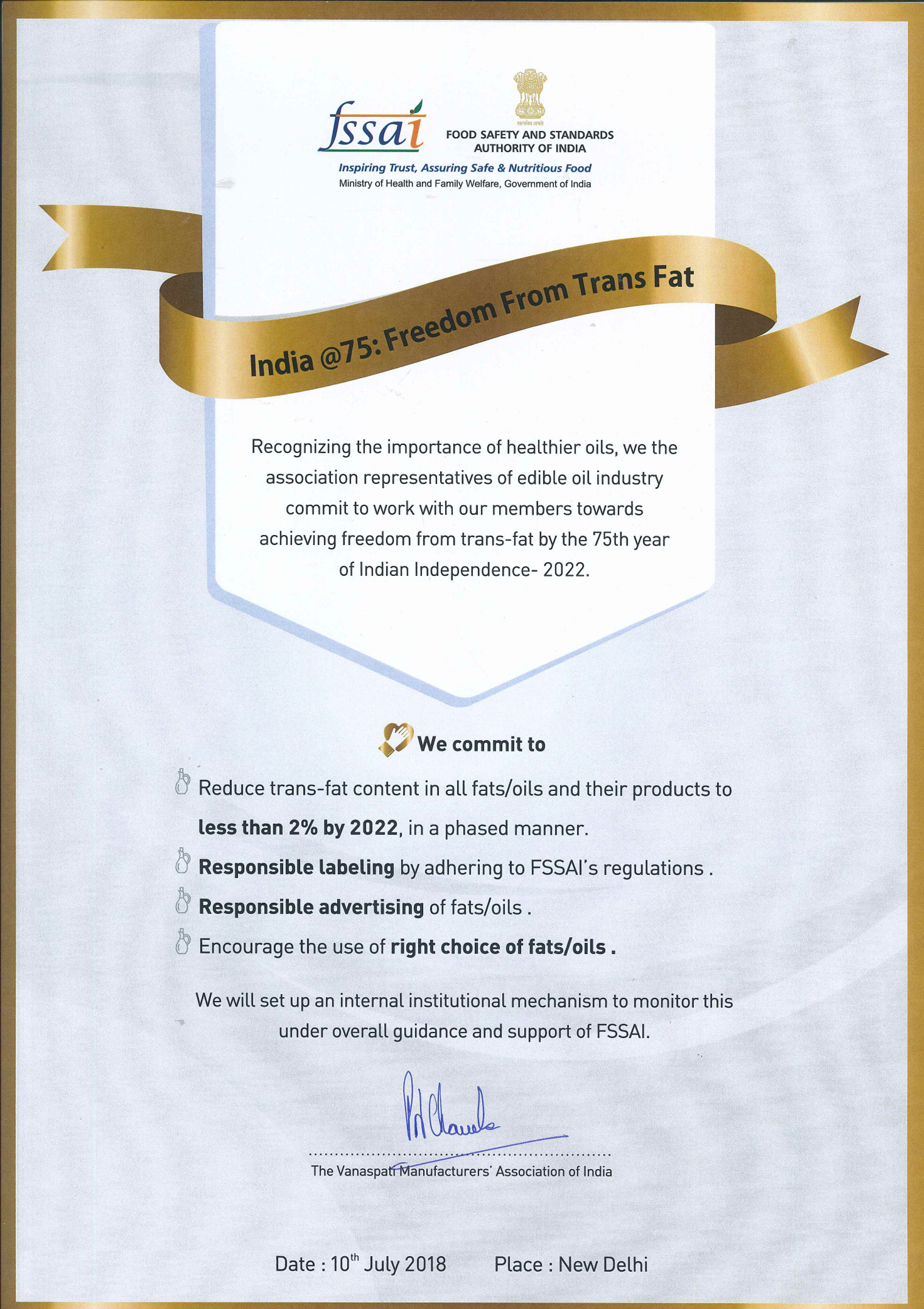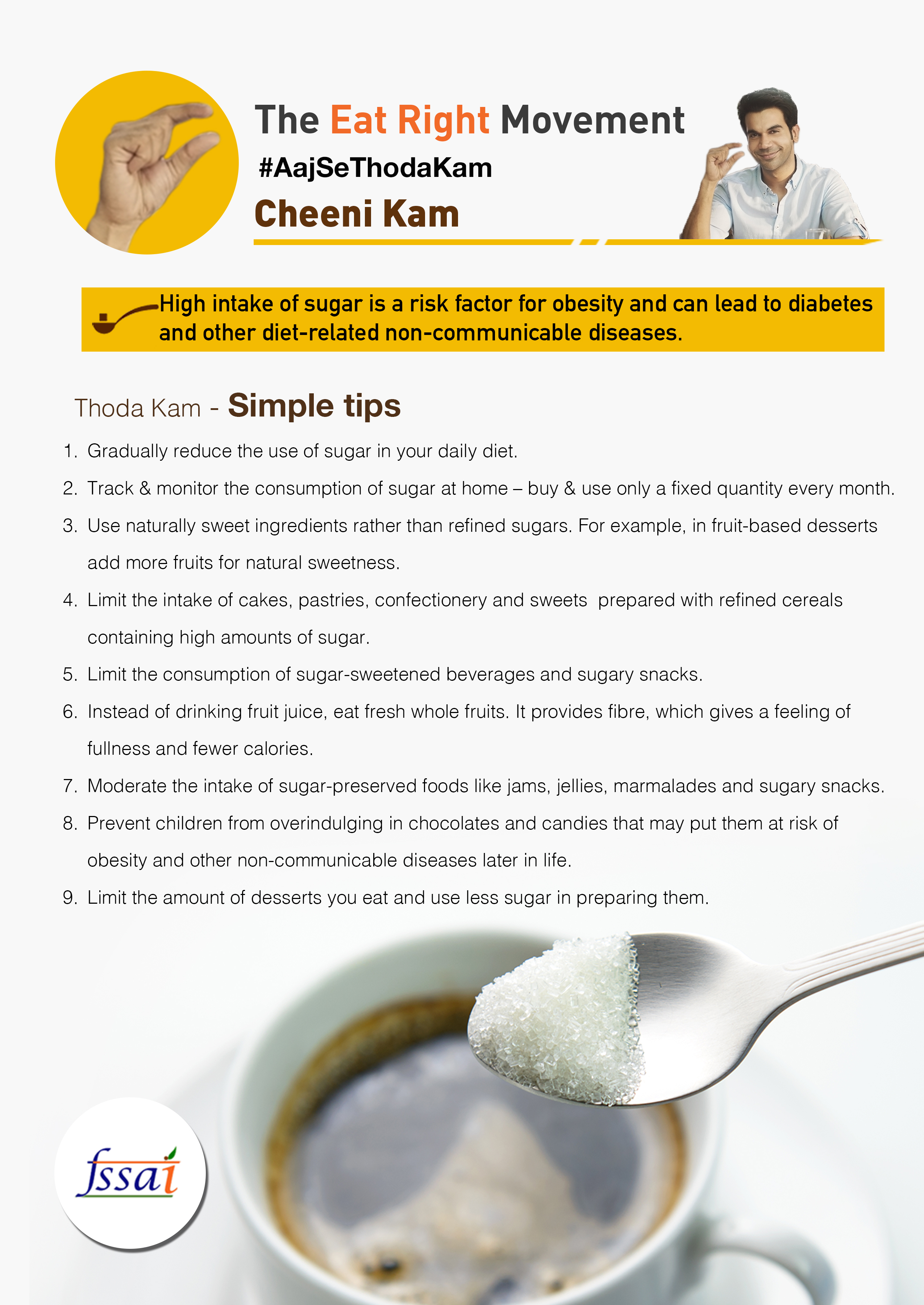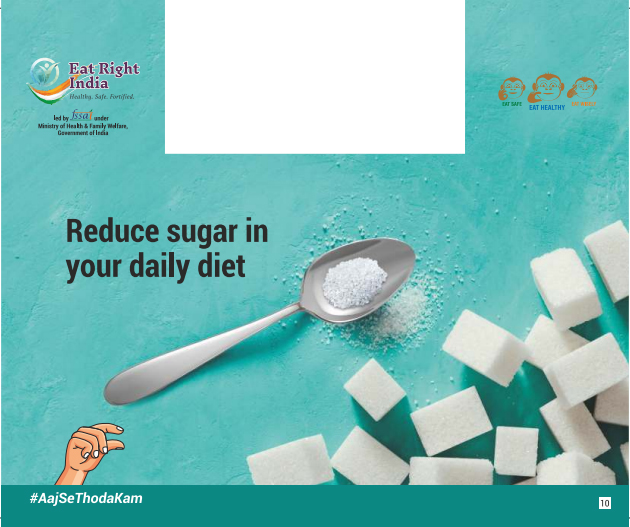
REDUCE SUGAR
SUGAR
Sugars are type of simple carbohydrates that tastes sweet and occur naturally in fruits and vegetables. Processed sugars when added to food and beverages by manufacturers, chefs, cooks, and consumers at home are called added sugars. Added sugars available in the form of granules, cubes, powder, syrups, etc. are termed as ?empty calories? as they have no nutritional value (they contain no vitamins and minerals except simple carbohydrates). Consuming too much added sugar contributes to greater risk of obesity, diabetes and heart diseases.
How to train your taste buds towards sugar reduction ?
- Take less sugar than what you are accustomed to. Start with half a teaspoon less... and than again, after few days a little lesser.
- You can make your favourite recipes less sugary by reducing a little bit at a time, try using little less sugar than the recipe calls for, next time use little lesser, right up until you notice the difference.
- Prefer using naturally sweet ingredients in place of refined sugars. E.g., in fruit based desserts add more of fruits for natural sweetness.
- Foods such as cakes, pastries, confectionery and sweets often have high amountof fat, sugar, or salt, prepared with refined cereals and thus should be consumed in restricted amounts.
- Limit the consumption of foods and drinks containing high amounts of sugars (e.g. sugar-sweetened beverages, sugary snacks, etc).
- A glass of juice is usually equal to the calories provided by three whole fruits. Instead of drinking fruit juice, eat a piece of fresh fruit. It provides fibre also which gives a feeling of fullness.
- Eat fresh fruits and raw vegetables as snacks instead of sugary snacks.
- Do not overindulge in sugar-preserved foods like jams, jellies and marmalades.
- Children can be trained to consume less sugary foods since childhood which can continue in their later life and prevent them from over-consumption of sugar and sugary foods.
- Consumption of less sugary foods or infrequent consumption of sugary foods can help your children in averting obesity and other non-communicable diseases, later in their life.
Support by Food Businesses
As part of the ?Eat Right India? movement', food businesses have committed to promote healthier food options in several ways.
These include-
- Reformulation of food products by major food companies to reduce the content of sugar and salt in packaged food.
- Provision of healthier food options by the food services sector and introduction of menu labelling on nutrition information.
- Promotion of healthier food options and responsible retail practices by food retailers and e-commerce players.
- Phasing-out of trans-fats in food products by the edible oil industry, bakeries and 'halwais' towards a 'Trans-fats-free India by 2022': India@75
